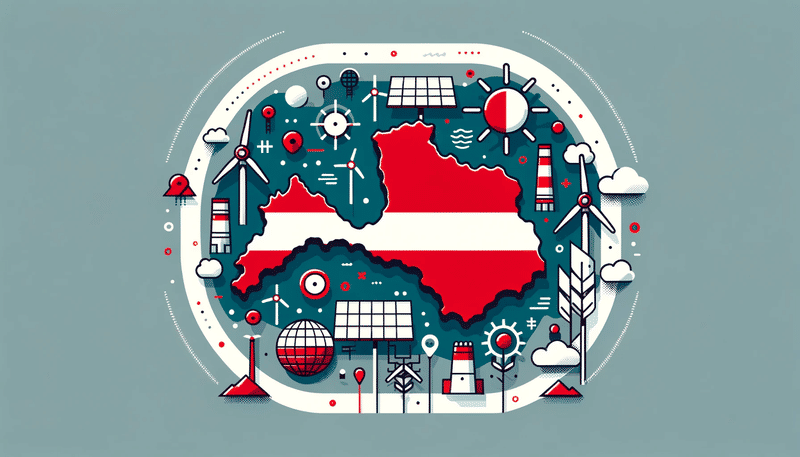Understanding the electricity market in Latvia
Primary energy sources in Latvia
Latvia's energy sector primarily relies on a mix of resources. The country has a significant emphasis on renewable energy, particularly hydroelectric power, which is the main source of electricity. This reliance is part of a broader strategy to utilize sustainable and environmentally friendly energy sources.

Alongside hydroelectric power, Latvia also utilizes other renewable sources like wind and solar energy, though to a lesser extent. The country's diverse energy mix is indicative of its commitment to reducing carbon emissions and promoting sustainable energy practices.
Integration into the EU electricity market
As a member of the European Union, Latvia is an active participant in the EU electricity market. This integration allows for the exchange of electricity across borders, enhancing energy security and market efficiency. Latvia's connection to neighboring countries enables it to import and export electricity, depending on demand and supply dynamics.
The interconnectivity with neighboring countries not only ensures a stable electricity supply but also encourages competition and price regulation in the market. This aspect of the electricity market is crucial in understanding the pricing and availability of electricity in Latvia.
Renewable energy initiatives
Latvia has been progressively increasing its focus on renewable energy. The country's investment in renewable energy technologies is part of a broader aim to reduce dependence on fossil fuels and decrease greenhouse gas emissions. Latvia's strategic geographical location offers significant potential for wind and solar power development.
The government's support for renewable energy initiatives is evident in its policies and investments. These initiatives are not only beneficial for the environment but also contribute to the stability and diversification of Latvia's energy supply.
Challenges and future outlook
Despite the progress in renewable energy, Latvia faces challenges in fully transitioning to sustainable energy sources. The need for modernizing energy infrastructure and ensuring consistent energy supply, especially during periods of low renewable energy generation, remains a challenge.
Looking ahead, Latvia aims to continue its journey towards a more sustainable energy future. This includes further integration into the European electricity market, increased focus on renewable energy sources, and enhancing energy efficiency. The country's commitment to these goals reflects its dedication to a sustainable and secure energy landscape.
Impact on consumers and businesses
The dynamics of Latvia's electricity market have direct implications for both consumers and businesses. The shift towards renewable energy and integration with the EU market can lead to more stable and potentially lower electricity prices in the long term. However, these transitions also require significant investment, which can impact short-term pricing.
For businesses, the evolving electricity market in Latvia presents both challenges and opportunities. Adapting to new energy sources and efficiency standards can be challenging, but it also opens up avenues for innovation and sustainable business practices.
